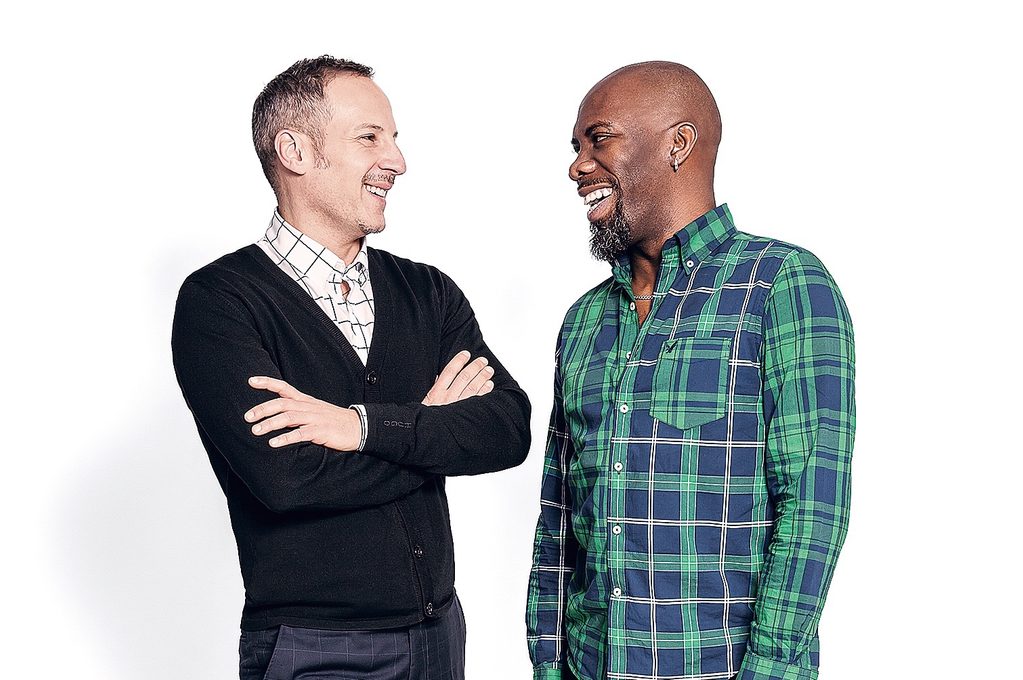Great Canadians: Rainbow Railroad

Michael Battista and Gareth Henry help LGBT refugees find asylum in Canada.
Gareth Henry was 15-years-old the first time he had to uproot his life because of who he was. Growing up in St. Mary, a rural enclave on Jamaica’s northern coast, he realized his attraction to other boys might endanger him, especially in his small community. In Jamaica, acts of male homosexuality are punishable with up to 10 years in jail. In 1993, brave but bewildered, he left his sister, mother and grandmother and set out for the nearby city of Kingston.
Once there, Henry immersed himself in activism. He became a founding member of J-FLAG (the Jamaican Forum for Lesbians, AllSexuals and Gays), and when the head of that organization was stabbed to death in a homophobic attack, he volunteered to replace him. “I was in my early 20s, a naïve little boy, and I said, ‘Okay, I will.'”
The increased visibility made Henry a target, and in 2007, police beat him in front of 200 bystanders. He went into hiding soon after, but his aggressors tracked him down and threatened to kill him. That’s when Henry knew he had to flee again-this time, at the age of 30, beyond his country’s borders.
Henry arrived in Canada in early 2008. Because of his profile as an international gay- and lesbian-rights advocate, he was granted asylum.
But even as Henry adjusted to his new life, his mind turned to others who weren’t as lucky. “I had a place to live, I had support-which is what I hoped there would be for every refugee,” he says.
That’s when Henry connected with Rainbow Railroad. Started in 2006 by grassroots activists, the Toronto-based group was worried about state-sanctioned violence against members of the international LGBT (lesbian, gay, bisexual and transgender) community. The organization’s goal, says founding member Michael Battista, was simple: “to help people make it from a place of danger to a place of safety.”
Applicants must be living in a country where homosexuality is criminalized; from there, volunteers cross-reference details with contacts on the ground and members of local LGBT groups and, in many cases, follow up with interviews over Skype. Rainbow Railroad then provides funds, guidance and information to persecuted individuals looking for refuge in countries with a progressive stance on LGBT rights-primarily in Western Europe and North America.
Things moved very slowly for the first two years of Rainbow Railroad’s existence, according to Battista. But Henry’s arrival as a volunteer in 2009 marked a turning point. “We started working with him to identify those most at risk in Jamaica, and he was very effective at referring people facing real threats thanks to his on-the ground connections.” By 2013, Henry had helped 36 individuals from the Caribbean gain asylum in Canada, just as he had.
Rainbow Railroad has expanded dramatically since its inception. In 2014, the group handled more cases than ever before, funding the airfare and travel of 33 individuals from Jamaica, Nigeria and Uganda. (It also provided basic supplies to asylum seekers in hiding prior to emigration.) In 2015, staff fielded 281 pleas from would-be claimants that flooded in through various channels, including email, social media and community organizations. Rainbow Railroad is currently working on creating safe “routes” throughout the Middle East and South and Central Asia.
While the organization offers vital financial and administrative assistance, it’s often the psychological and emotional support that means the most to asylum seekers. That’s also at the heart of why Rainbow Railroad is so important to Henry. “What they’re going through is my lived experience,” says the man still shaken by the murder of 13 friends during his four years with J-FLAG.
Henry, who knows first-hand the sacrifices that can be involved with daring to live fully, dreams of seeing Rainbow Railroad bridge continents. “I want to build safe houses around the world, create resources, help LGBT people get a second chance at life. I want them to be able to be their authentic selves.”



